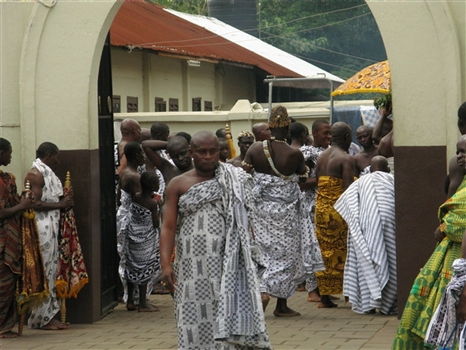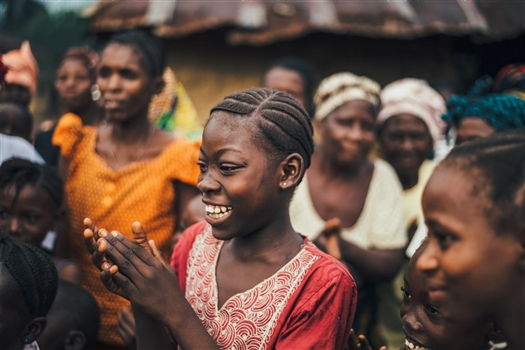Akwasidae Festival
In some of Akan communities Akwasidae festival is a celebration and remembrance of the dead. They present food to the gods and ancestors, and clean or purify their black stool. This one of the sacred festivals among the Ashanti’s that takes place in Manhyia Palace in Kumasi.
Origin
The Akan traditional calendar is divided into nine parts, with six weeks in each. The celebration of this period is what is referred to as the Akwasidae festival and comprises Akwasidae and Awukudae. The Asante people mark this celebration by remembering the dead and purifying the community and tradition.
Preparations for Akwasidae
Before the actual celebrations of Akwasidae start, tradition calls for the hosting of preparations. The day can be a Tuesday (beneda dapaa) or Saturday (memenda dapaa). This day is spent on cleaning the town and the stools and calabashes needed in the ceremonies. Drummers are playing in every chief’s (Ohene’s) palace from sunset until late at night. In the evening of dapaa (preparation) the chief drummer called ‘okyerema’ sounds or beats the talking drum (atumpan) to announce to the people the coming of Adae. He then calls on the gods, ancestral spirits, and God (in that order) to come and bless the day for the occasion.
Rituals in Akwasidae
Early in the morning of Adae, the chief, elders, chief priest, and the family heads in mourning clothes assemble at the stool room to pour libation. The chief priest pours libation on behalf of the chiefs and the people of the traditional area and the entire country. A sheep is sacrificed and the blood is sprinkled on all the stools. A special meal of mashed yams (eto) and boiled eggs are prepared and served to the gods and spirits of the land.
Paying homage to the Omanhene
In the afternoon, the Omanhene sits in state with his sub-chiefs and receive goodwill messages from politicians, religious leaders, and well-wishers. There is an exchange of greetings and pleasantries.
Settlement of disputes
Family heads, elders, and chiefs settle all disputes and misunderstandings within the traditional area. They address some developmental challenges of the area. The leaders also discuss problems facing the community and raise funds to solve these problems.
Merrymaking
This is ‘The Day’ of the whole festival. The festival is characterized by drumming, singing, dancing, and socialization. Then socialization goes on till late in the night. People are encouraged to get to know new people, as marriages and business relations can be formed from these meetings.
Significance of the Akwasidae Festival
- The Akwasidae festival is a celebration to honor departed chiefs and invoke the blessings of their spirits by calling their names and deeds. Ghanaians and Ashanti’s especially are spiritual people, they have a deep reverence for their relations and this festival is their way of honoring the memory of their dead. Therefore, this is a highly sacred festival. During this festival locals purify the black stool.
- Traditional families revere stools, and every traditional family has one. It is the guardian of their heritage and possesses a history of the past. During Akwasidae, people bring these stools outside and purify with the blood of animals.
- It is a celebration and remembrance of the dead.
The Akwasidae is mostly celebrated in Kumasi. To get there you can just take a Kumasi-bound bus or buy a plane ticket to the Kumasi airport.
When visiting Ghana around Akwasidae times, make sure you wear something comfortable. It can be a hectic time with everyone going out and celebrating and comfortable clothing makes whole lot of a difference when attending big festivals like this one.
When you see a Chief being carried in his palanquin shout “Ohene nyan-kwa-daa” (meaning long live the king) the locals would love that.

Desmond Dorvlo, GhanaTRVL writer and champion debater, brings Ghana’s culture and landscapes to life with passion and insight in every article.














Comments